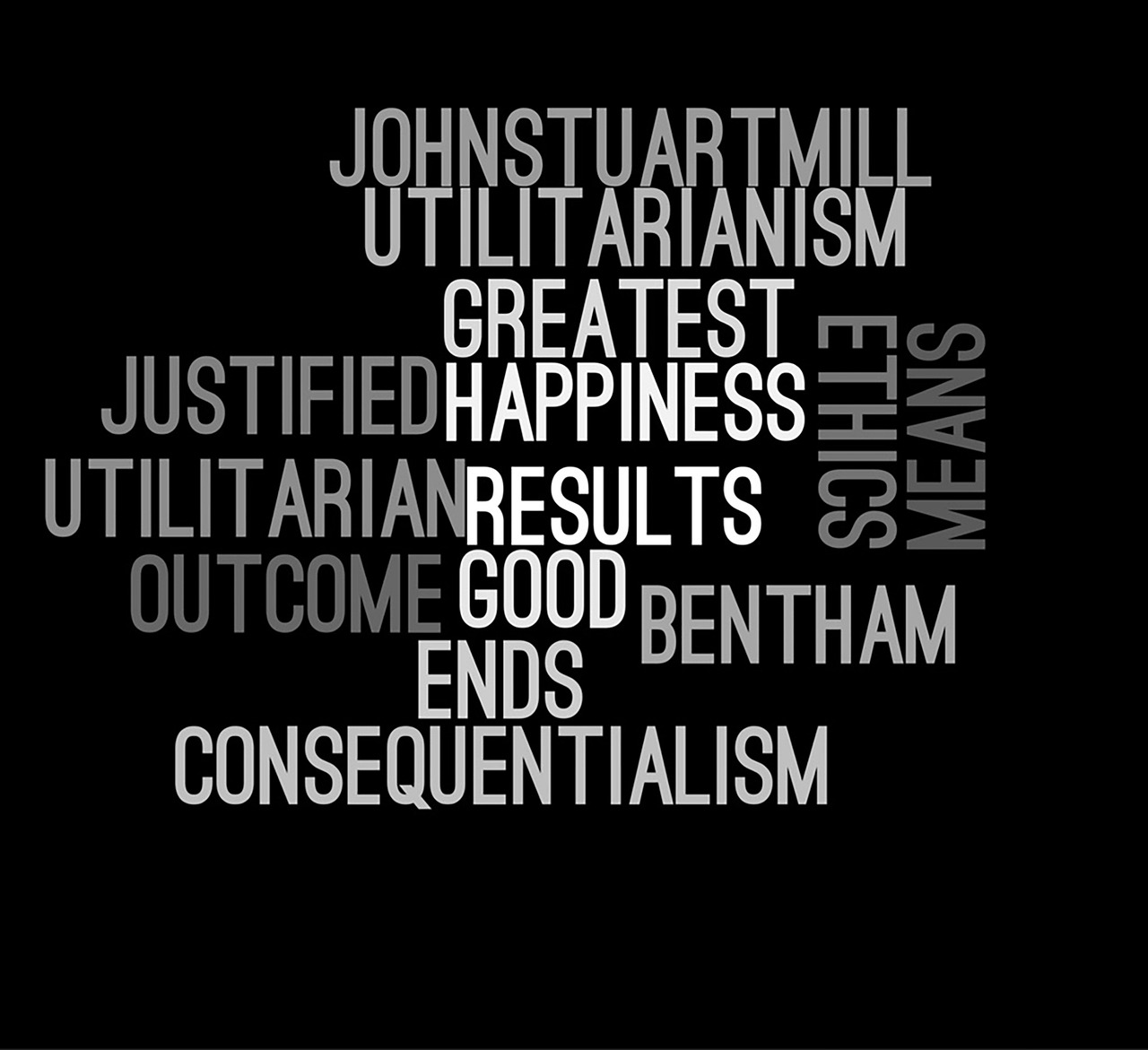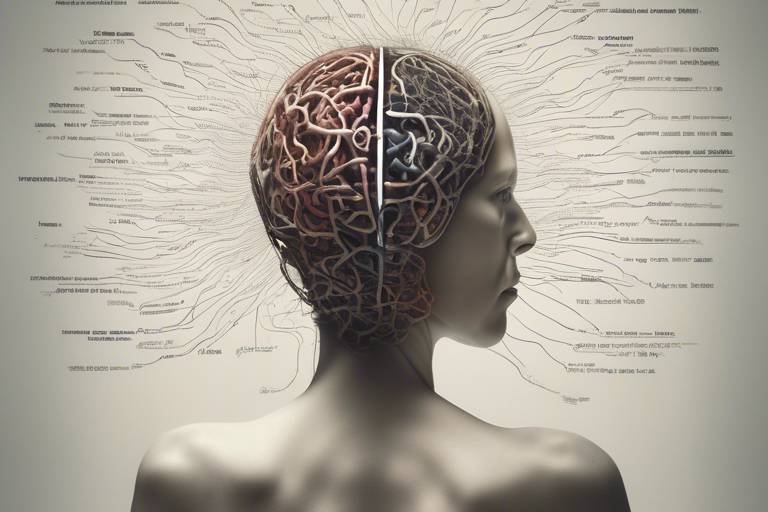John Stuart Mill's Utilitarianism: An Evaluation
John Stuart Mill's utilitarianism is a fascinating philosophical framework that has sparked debate and discussion for over a century. At its core, utilitarianism seeks to maximize happiness and minimize suffering, which sounds incredibly appealing, right? Imagine a world where every action is evaluated based on its ability to produce the greatest good for the greatest number. This concept, however, is not without its complexities and challenges. Mill, building on the foundations laid by earlier thinkers like Jeremy Bentham, refined the idea of utilitarianism, adding layers of depth that resonate even in today's ethical discussions. But what does this really mean for us in the contemporary world? How does it influence our moral compass?
To truly appreciate Mill's contribution, we need to dive into the historical context of utilitarianism. Born in 1806, Mill was influenced by the Enlightenment ideals of reason and progress. The societal conditions of his time, marked by industrialization and social reform, shaped his views on ethics and morality. He was not just a philosopher; he was a social activist who believed that philosophy should serve as a tool for improving society. This backdrop sets the stage for understanding how Mill's thoughts evolved and how they continue to impact moral philosophy today.
One of the most compelling aspects of Mill's utilitarianism is its emphasis on the consequences of actions. Unlike other ethical theories that might prioritize duties or rules, utilitarianism demands that we consider the outcomes of our choices. This approach can be both liberating and daunting. It encourages us to think critically about our decisions and their ripple effects on the world around us. Are we making choices that genuinely contribute to the well-being of others? Or are we simply acting in our own self-interest? Mill's principles challenge us to engage in this self-reflection.
However, as we explore Mill's ideas, we must also acknowledge the critiques that have emerged over time. Critics argue that utilitarianism can lead to unjust outcomes, particularly when the happiness of the majority is prioritized at the expense of the minority. This raises important questions about fairness and morality. Can we really justify sacrificing the happiness of a few for the greater good? Moreover, the challenge of measuring happiness objectively complicates the implementation of utilitarian principles in real-world scenarios. How do we quantify pleasure or suffering?
Despite these critiques, Mill's utilitarianism remains relevant in modern ethical discussions. Its application spans various fields, from politics to economics and even bioethics. For instance, in public policy, utilitarian principles often guide decisions aimed at maximizing collective welfare. Policymakers frequently grapple with the challenge of balancing diverse interests while striving to achieve the greatest good. This dynamic interplay between theory and practice highlights the enduring influence of Mill's ideas.
In conclusion, evaluating John Stuart Mill's utilitarianism reveals a rich tapestry of ethical considerations that continue to resonate today. His emphasis on the consequences of actions, the distinction between higher and lower pleasures, and the quest for overall happiness invite us to engage deeply with our moral choices. As we navigate the complexities of contemporary ethical dilemmas, Mill's utilitarianism serves as a vital reference point, urging us to reflect on the broader impact of our actions. So, the next time you make a decision, big or small, consider: is it contributing to the happiness of not just yourself, but of others as well?
- What is the main idea behind Mill's utilitarianism?
Mill's utilitarianism is centered around the principle of the greatest happiness, which suggests that the best actions are those that maximize overall well-being. - How does Mill differentiate between types of pleasure?
Mill distinguishes between higher pleasures (intellectual and moral) and lower pleasures (physical), advocating for the prioritization of higher pleasures in ethical decision-making. - What are some critiques of utilitarianism?
Critics argue that utilitarianism can lead to unjust outcomes, particularly when the happiness of the majority is prioritized over the rights of the minority, and that measuring happiness objectively is inherently challenging. - Is utilitarianism still relevant today?
Yes, utilitarianism remains a significant framework in contemporary ethical discussions, influencing areas such as public policy, economics, and environmental ethics.

Historical Context of Utilitarianism
To truly grasp the essence of utilitarianism, it's crucial to dive into its historical context. This philosophical framework didn't just pop up out of thin air; it was shaped by a myriad of thinkers and societal conditions. The roots of utilitarianism can be traced back to the early modern period, heavily influenced by the works of philosophers such as Jeremy Bentham and David Hume. These thinkers laid the groundwork for a philosophy that prioritizes the consequences of actions over intentions, fundamentally altering the landscape of moral philosophy.
In the late 18th and early 19th centuries, when John Stuart Mill was formulating his ideas, society was undergoing significant transformations. The Industrial Revolution was in full swing, leading to unprecedented changes in social structures, economic systems, and individual lifestyles. This era was marked by a growing belief in progress and the potential for human happiness through rational thought and social reform. Mill, influenced by the Enlightenment ideals of reason and empiricism, sought to refine utilitarianism to address the complexities of human experience.
Mill's philosophical development was also shaped by his personal experiences and the intellectual environment he was immersed in. Raised in a strict utilitarian household, he was educated by his father, who was a close associate of Bentham. This upbringing instilled in Mill a deep appreciation for utilitarian principles, yet he also recognized their limitations. He was aware that a simplistic application of these principles could lead to moral dilemmas and injustices, particularly when considering the rights of minorities against the majority's happiness.
During Mill's lifetime, several social issues were at the forefront, including women's rights, slavery, and the labor movement. These issues prompted Mill to advocate for a more nuanced understanding of happiness, one that encompassed not just the quantity of pleasure but also its quality. His engagement with these pressing social matters reflected a broader trend in utilitarian thought, which aimed to apply ethical theories to real-world problems. This practical approach is what makes Mill's version of utilitarianism particularly relevant today.
Furthermore, the philosophical debates of the time also played a critical role in shaping Mill's ideas. The clash between rationalism and empiricism was pivotal. While rationalists emphasized the role of reason in understanding moral truths, empiricists like Hume argued that our moral judgments are grounded in human sentiments and experiences. Mill sought to bridge this gap, advocating for a utilitarian philosophy that was both rationally grounded and sensitive to human emotions and social contexts.
In summary, understanding the historical context of utilitarianism not only enriches our comprehension of Mill's ideas but also highlights the evolution of moral philosophy. It illustrates how utilitarianism emerged as a response to the challenges of its time, aiming to create a more just and equitable society. As we continue to explore Mill's contributions, we can appreciate the profound impact his thoughts have had on contemporary ethical discussions.

Key Principles of Mill's Utilitarianism
John Stuart Mill's utilitarianism is a fascinating ethical theory that revolves around a central tenet: the principle of the greatest happiness. This principle posits that the best action is the one that maximizes overall happiness or well-being for the greatest number of people. Imagine a world where every decision is made with the aim of promoting joy and reducing suffering—this is the essence of Mill's vision. His approach emphasizes the significance of consequences, urging us to evaluate our actions based on their outcomes rather than merely adhering to rigid moral rules.
Mill's philosophy is not just about chasing pleasure; it’s about understanding the deeper implications of our choices. He recognized that happiness is not a one-size-fits-all concept. Instead, he introduced a nuanced perspective that distinguishes between different types of pleasures. This leads us to an essential aspect of his thought: the distinction between quantitative and qualitative pleasures. While some might argue that more pleasure is always better, Mill challenges us to consider the quality of pleasure as well. This is where his philosophy becomes particularly rich and engaging.
Mill famously argued that not all pleasures are equal. He believed that higher pleasures, which include intellectual and moral satisfactions, should be prioritized over mere physical pleasures. To illustrate this, think about the difference between enjoying a delicious meal (a physical pleasure) and experiencing the profound joy of reading a great book or engaging in a meaningful conversation (higher pleasures). Mill posited that those who have experienced both types of pleasure would always choose the higher ones, as they contribute more significantly to our overall well-being.
This classification of pleasures is crucial in understanding Mill's utilitarianism. He categorized pleasures into two broad types: higher pleasures and lower pleasures. Higher pleasures are associated with the mind and moral faculties, such as art, literature, and philosophical contemplation. In contrast, lower pleasures are more about physical sensations, like eating and drinking. Mill argued that while both types of pleasure are important, the higher pleasures lead to a more fulfilling and enriched life. This distinction encourages individuals to strive for deeper, more meaningful experiences rather than settling for transient physical satisfaction.
Understanding the difference between higher and lower pleasures has profound implications for moral decision-making. It pushes us to think critically about the effects of our actions on the broader community and future generations. For instance, when faced with a choice, one might ask: “Will this action promote long-term happiness for myself and others?” This reflective approach encourages a more thoughtful consideration of how our choices impact overall well-being. By prioritizing actions that foster higher pleasures, we can contribute to a more just and compassionate society.
In conclusion, Mill's utilitarianism is not merely a formula for calculating happiness; it is a rich, complex framework that invites us to engage deeply with the moral dimensions of our choices. By emphasizing the quality of pleasure and the consequences of our actions, Mill provides a roadmap for ethical living that remains relevant today. As we navigate the complexities of modern life, his principles continue to challenge us to think beyond immediate gratification and consider the broader implications of our pursuits.

Quantitative vs. Qualitative Pleasure
When diving into the depths of John Stuart Mill's utilitarianism, one cannot overlook the intriguing distinction he makes between quantitative and qualitative pleasures. At first glance, it might seem like a simple differentiation, but this concept is a cornerstone of Mill's philosophy, showcasing how he sought to elevate the discourse around happiness and moral action. Mill argues that not all pleasures are created equal; rather, the quality of pleasure plays a pivotal role in determining its value.
To illustrate this point, think of a simple analogy: imagine two types of ice cream. One is a rich, gourmet chocolate made with the finest ingredients, while the other is a cheap, mass-produced vanilla. While both might satisfy your sweet tooth, the experience of savoring the gourmet chocolate is far more fulfilling and pleasurable than the quick fix of the vanilla. This is precisely how Mill views pleasures—some are inherently more enriching and rewarding than others.
Mill categorizes pleasures into two main types: higher pleasures and lower pleasures. Higher pleasures are those that engage our intellect, moral faculties, and emotions. They include activities such as reading literature, engaging in philosophical discussions, or appreciating art. In contrast, lower pleasures are more physical and immediate, like eating or drinking. Mill famously asserts that it is better to be a dissatisfied human than a satisfied pig, emphasizing that the richness of experience and the depth of satisfaction matter more than mere sensory indulgence.
This qualitative approach to pleasure leads to a more nuanced understanding of happiness. Mill's assertion that higher pleasures should be prioritized encourages individuals to seek out experiences that not only bring joy but also contribute to personal growth and societal well-being. For instance, participating in community service or engaging in creative pursuits may offer greater long-term satisfaction than fleeting moments of indulgence.
In practical terms, this means that when making ethical decisions, one should consider not just the quantity of happiness generated but also the quality of that happiness. A decision that brings temporary joy to many might not hold the same moral weight as one that fosters deeper, more meaningful happiness for fewer individuals. Thus, Mill’s framework pushes us to reflect on the broader implications of our choices, urging us to strive for actions that enhance both individual and collective well-being.
In summary, Mill's distinction between quantitative and qualitative pleasures enriches the utilitarian framework by advocating for a deeper understanding of happiness. It challenges us to look beyond immediate gratification and consider the lasting impact of our actions. In a world often obsessed with quick fixes and surface-level satisfaction, Mill's insights remind us that true fulfillment lies in the quality of our experiences and the depth of our connections with others.

Higher and Lower Pleasures
When we delve into John Stuart Mill's utilitarianism, one of the most intriguing aspects is his classification of pleasures into higher and lower categories. Mill argued that not all pleasures are created equal; some bring a richer, more fulfilling experience than others. This distinction is crucial for understanding how we can make ethical decisions that truly enhance human well-being.
Mill believed that intellectual and moral pleasures—the kind that stimulate the mind and elevate the spirit—are far superior to mere physical pleasures. For instance, consider the joy of reading a profound book or engaging in a deep philosophical discussion. These activities not only provide satisfaction but also contribute to personal growth and a deeper understanding of the world. In contrast, while physical pleasures like eating a delicious meal or enjoying a sunny day are enjoyable, they do not foster the same level of enrichment.
To illustrate this point further, let’s break down the characteristics of higher and lower pleasures:
| Type of Pleasure | Examples | Characteristics |
|---|---|---|
| Higher Pleasures | Reading literature, engaging in art, moral reasoning | Intellectual stimulation, long-lasting satisfaction, personal growth |
| Lower Pleasures | Eating, sleeping, physical recreation | Immediate gratification, transient enjoyment, less impact on personal development |
This classification is not just an academic exercise; it has profound implications for how we approach moral decision-making. Mill suggests that when faced with a choice, one should consider not just the immediate outcomes but also the long-term effects on personal and societal happiness. For example, opting for a career that contributes to society, even if it offers less financial reward, may be seen as a higher pleasure compared to one that simply maximizes income without a meaningful impact.
Ultimately, Mill's framework encourages us to reflect on our choices and their consequences. It challenges us to seek out those experiences that enrich our lives and the lives of others. As we navigate our daily decisions, whether they involve career paths, leisure activities, or social engagements, understanding the distinction between higher and lower pleasures can guide us toward a more fulfilling and ethically sound life.

Implications for Moral Decision-Making
When we dive into the implications of Mill's utilitarianism for moral decision-making, it becomes clear that this philosophy is not just an abstract concept; it’s a practical guide for navigating the complex terrain of ethical choices. Imagine standing at a crossroads, where every path represents a different action with varying consequences. Mill’s framework encourages us to weigh these paths not just by their immediate outcomes, but by their broader impact on overall happiness. In essence, it asks us to think like a moral accountant, calculating the potential joy or suffering our decisions may bring.
One of the most significant implications of Mill's approach is the emphasis on considering the greater good. This means that in situations where personal interests conflict with the welfare of the community, a utilitarian perspective might prompt individuals to choose actions that benefit the majority, even at a personal cost. For example, a doctor faced with limited resources might prioritize treatment for patients whose recovery would yield the greatest benefit to society. This principle can sometimes feel counterintuitive, especially when it comes to deeply personal decisions, yet it serves as a reminder that our actions ripple outwards, affecting not only ourselves but also those around us.
Furthermore, Mill's distinction between higher and lower pleasures adds another layer to moral decision-making. It compels individuals to reflect on the quality of the outcomes of their choices. Are we merely seeking instant gratification, or are we striving for a deeper, more fulfilling happiness? This qualitative assessment pushes us to elevate our ethical considerations beyond mere numbers and statistics. For instance, consider a community project aimed at improving local parks. The immediate pleasure of a new playground might be enticing, but the long-term benefits of a community garden that fosters social interaction and environmental awareness may offer a richer form of happiness.
However, the path of utilitarianism is not without its challenges. It requires a level of foresight and moral reasoning that can be daunting. We must ask ourselves: how do we measure happiness? And what if our actions inadvertently lead to harm, even if the intention was to maximize well-being? These are the types of questions that can make moral decision-making feel like a minefield. To navigate this terrain, it’s essential to engage in open discussions and consider diverse perspectives. This is where the concept of moral dialogue becomes crucial. By sharing our thoughts and experiences, we can better understand the potential consequences of our actions and refine our ethical compass.
In summary, the implications of Mill's utilitarianism for moral decision-making are profound and far-reaching. They challenge us to think critically about our choices and their impacts on others. By prioritizing the greater good and striving for higher pleasures, we not only enhance our own moral reasoning but also contribute to a more compassionate society. So, the next time you find yourself at a moral crossroads, remember Mill’s call to consider the happiness of all. It may just lead you to a more fulfilling and ethical path.

Critiques of Mill's Utilitarianism
While John Stuart Mill's utilitarianism has made significant contributions to moral philosophy, it is not without its critiques. One of the primary challenges is the **feasibility** of applying utilitarian principles in real-world scenarios. Critics argue that calculating the greatest happiness for the greatest number can be an **overly simplistic** approach to complex ethical dilemmas. For instance, how do we quantify happiness? Can we truly measure the joy of a child versus the contentment of an adult? These questions illustrate the inherent difficulty in determining what actions will lead to the most happiness.
Another major critique revolves around the **potential for injustice** that utilitarianism can inadvertently endorse. In the pursuit of maximizing overall happiness, individual rights may be overlooked or sacrificed. Imagine a situation where a minority group is oppressed for the sake of enhancing the happiness of the majority. This idea raises serious ethical concerns about whether the ends justify the means. Critics argue that Mill's framework can lead to morally questionable outcomes, where the suffering of a few is deemed acceptable if it results in greater happiness for many.
Furthermore, the challenge of measuring happiness objectively cannot be ignored. Mill's utilitarianism hinges on the ability to assess the consequences of actions based on their impact on happiness. However, happiness is a **subjective experience** that varies from person to person. What brings joy to one individual may not have the same effect on another. This subjectivity complicates the utilitarian calculus and raises the question: can happiness truly be quantified? In light of these critiques, some philosophers advocate for a more nuanced approach that incorporates **deontological ethics**, which emphasizes the importance of duty and moral rules, rather than solely focusing on outcomes.
To illustrate the critiques further, let's consider a **table** summarizing the main challenges faced by Mill's utilitarianism:
| Critique | Description |
|---|---|
| Feasibility | Difficulty in calculating the greatest happiness for all in complex situations. |
| Potential for Injustice | May justify actions that harm minorities for the sake of majority happiness. |
| Subjectivity of Happiness | Happiness is personal and cannot be easily measured or compared. |
In conclusion, while Mill's utilitarianism offers a compelling framework for evaluating moral decisions, it is essential to acknowledge its limitations. The critiques highlight the need for a more comprehensive ethical approach that balances the pursuit of happiness with the protection of individual rights and the complexities of human experience. As we navigate the intricate landscape of moral philosophy, these discussions remain vital for shaping our understanding of ethics in a rapidly changing world.
- What is utilitarianism? Utilitarianism is an ethical theory that suggests that the best action is the one that maximizes overall happiness or well-being.
- Who developed utilitarianism? Utilitarianism was developed by philosophers such as Jeremy Bentham and later expanded by John Stuart Mill.
- What are the main critiques of Mill's utilitarianism? The main critiques include the feasibility of measuring happiness, the potential for injustice, and the subjectivity of happiness.
- How is utilitarianism applied in modern ethics? Utilitarian principles are often applied in public policy, economics, and bioethics to evaluate the consequences of actions on collective welfare.

Utilitarianism in Modern Ethics
In today's rapidly evolving world, the principles of utilitarianism continue to resonate deeply within various ethical discussions. The essence of Mill's utilitarianism, which revolves around maximizing happiness and reducing suffering, finds its way into numerous fields including politics, economics, and healthcare. But how does this age-old philosophy hold up against the complexities of modern ethical dilemmas? The answer lies in its adaptable nature, allowing it to navigate through the murky waters of contemporary issues.
For instance, consider the realm of public policy. Politicians and policymakers often grapple with decisions that affect the lives of countless individuals. Utilitarianism provides a framework for evaluating these decisions based on their outcomes. By focusing on the greatest good for the greatest number, leaders can prioritize initiatives that enhance overall societal well-being. This approach not only encourages transparency but also fosters accountability, as it compels decision-makers to consider the wider implications of their policies.
Moreover, the relevance of utilitarianism extends to the domain of bioethics. As advancements in medical technology and treatment options emerge, ethical questions arise regarding resource allocation and patient care. For example, how do we decide who receives life-saving treatments when resources are limited? Here, utilitarian principles can guide healthcare professionals in making difficult choices, emphasizing the importance of outcomes that maximize health benefits for the majority, while still respecting individual rights.
Furthermore, the intersection of utilitarianism and environmental ethics has become increasingly vital. As we face global challenges such as climate change and biodiversity loss, the need to consider the long-term consequences of our actions has never been more pressing. Utilitarianism encourages us to evaluate our environmental policies not just for immediate benefits but also for their potential impact on future generations. This broader perspective fosters a sense of responsibility towards both human and non-human life, urging us to adopt sustainable practices that promote the well-being of the planet.
In summary, the principles of utilitarianism remain a powerful tool in modern ethical discussions. Its emphasis on outcomes and the greater good allows it to adapt to various contexts, offering guidance in areas like public policy, bioethics, and environmental stewardship. As we confront increasingly complex moral dilemmas, the enduring influence of Mill's utilitarianism serves as a reminder that our choices have far-reaching consequences, and that striving for the greatest happiness is a goal worth pursuing.
- What is utilitarianism? Utilitarianism is an ethical theory that suggests that the best action is the one that maximizes overall happiness or well-being.
- How does utilitarianism apply to modern ethics? Utilitarianism is applied in various fields such as public policy, bioethics, and environmental ethics to guide decision-making based on the outcomes of actions.
- What are the critiques of utilitarianism? Critics argue that utilitarianism can justify harmful actions if they result in a greater overall good, and it can be challenging to measure happiness objectively.
- Can utilitarianism address environmental issues? Yes, utilitarianism encourages consideration of long-term consequences for both human and non-human life, promoting sustainable practices for the greater good.

Utilitarianism in Public Policy
Utilitarianism, with its core principle of maximizing happiness, plays a pivotal role in shaping public policy decisions. When policymakers embrace this ethical framework, they prioritize actions that yield the greatest good for the greatest number of people. This approach is not merely theoretical; it has real-world implications that can be observed in various sectors, from healthcare to education and beyond. Have you ever wondered how decisions are made that affect entire communities? Well, utilitarianism provides a lens through which we can evaluate these choices.
One of the most compelling aspects of utilitarianism in public policy is its focus on outcomes. By assessing the potential benefits and harms of a policy, decision-makers can weigh their options more effectively. For instance, consider a government contemplating the construction of a new highway. A utilitarian analysis would involve looking at factors such as:
- The economic benefits of improved transportation
- The environmental impact of construction
- Potential disruptions to local communities
- The long-term effects on traffic patterns
This comprehensive evaluation allows policymakers to make informed decisions that ideally enhance overall societal welfare. However, it's crucial to recognize that utilitarianism also faces challenges in public policy. Critics argue that the focus on the majority can lead to the neglect of minority rights. What happens to those who may suffer as a result of a decision that benefits the majority? This question is at the heart of the ongoing debate about the ethical implications of utilitarianism in governance.
Moreover, the implementation of utilitarian principles can sometimes lead to unintended consequences. For example, a policy aimed at reducing costs in healthcare by limiting access to certain treatments might save money in the short term but could potentially lead to greater health disparities in the long run. Such outcomes highlight the necessity for continuous evaluation and adjustment of policies to ensure they align with the evolving understanding of happiness and well-being.
To illustrate the impact of utilitarianism in public policy, consider the following table that summarizes key areas where these principles are applied:
| Policy Area | Utilitarian Application | Potential Benefits | Challenges |
|---|---|---|---|
| Healthcare | Resource allocation based on overall health outcomes | Improved population health | Access disparities |
| Education | Funding based on student performance metrics | Enhanced educational outcomes | Neglect of underperforming schools |
| Environmental Policy | Regulations aimed at reducing carbon emissions | Long-term sustainability | Economic impacts on certain industries |
In conclusion, while utilitarianism offers a valuable framework for evaluating public policy, it is essential to approach its application with caution. Policymakers must remain vigilant against the potential pitfalls of prioritizing the majority's happiness at the expense of individual rights and long-term consequences. The challenge lies in striking a balance that promotes the greatest good without sacrificing the well-being of any group. As we navigate the complexities of governance, the principles of utilitarianism can guide us toward more equitable and effective policy decisions.
- What is utilitarianism? Utilitarianism is an ethical theory that suggests the best action is the one that maximizes overall happiness or utility.
- How does utilitarianism apply to public policy? It guides policymakers to consider the outcomes of their decisions, aiming to achieve the greatest good for the greatest number.
- What are some criticisms of utilitarianism in policy-making? Critics argue that it can overlook the rights of minorities and lead to decisions that may cause harm to specific groups.
- Can utilitarianism be applied to environmental policies? Yes, utilitarianism can guide decisions that consider long-term environmental sustainability and the well-being of future generations.

Utilitarianism and Environmental Ethics
When we think about utilitarianism, it’s easy to focus on human happiness and well-being. However, the implications of this philosophy extend far beyond just us. In today’s world, where environmental challenges loom large, utilitarianism offers a compelling framework for considering the well-being of our planet as well. So, how exactly does utilitarianism mesh with environmental ethics? Let’s dive into this fascinating intersection.
At its core, utilitarianism advocates for actions that maximize overall happiness. In the context of environmental ethics, this means that we need to consider the well-being of not only humans but also the ecosystems and non-human entities that contribute to the overall happiness of the planet. After all, a healthy environment is crucial for human survival and happiness. Think about it: if we destroy our natural resources, we’re essentially robbing future generations of their right to enjoy the same pleasures we have today. This perspective prompts us to ask: What kind of legacy do we want to leave behind?
Moreover, Mill’s utilitarianism encourages us to weigh the long-term consequences of our actions. This is particularly important when it comes to environmental policies and practices. For instance, consider the impact of fossil fuel consumption. While it may provide immediate economic benefits and convenience, the long-term effects—like climate change, pollution, and habitat destruction—can lead to widespread suffering. Thus, in a utilitarian framework, we must prioritize actions that lead to sustainable practices that ensure the planet's health and, consequently, our own well-being.
To illustrate this further, let’s consider a few key areas where utilitarianism can be applied to environmental ethics:
- Resource Management: Sustainable practices in agriculture and forestry can maximize the happiness of future generations by ensuring that resources are available for them.
- Pollution Control: Implementing strict regulations on emissions can lead to cleaner air and water, thus enhancing the quality of life for all living beings.
- Biodiversity Conservation: Protecting endangered species not only preserves the beauty of our planet but also maintains ecological balance, which is crucial for human survival.
However, it’s essential to recognize that applying utilitarianism to environmental ethics is not without challenges. Critics argue that it can sometimes lead to the neglect of minority rights or the intrinsic value of nature. For instance, if a decision benefits the majority but harms a specific ecosystem, is it justified? This dilemma highlights the complexity of measuring happiness and well-being in a world that is interconnected in so many ways.
In conclusion, utilitarianism provides a robust framework for addressing environmental ethics by urging us to consider the broader implications of our actions. By prioritizing the long-term happiness of both humans and the environment, we can create policies and practices that not only benefit us now but also ensure a sustainable future for generations to come. So, as we navigate the challenges of climate change and environmental degradation, let’s keep asking ourselves: How can we maximize happiness for all living beings?
1. What is utilitarianism?
Utilitarianism is an ethical theory that suggests that the best action is the one that maximizes overall happiness or utility. It evaluates the moral worth of an action based on its consequences.
2. How does utilitarianism relate to environmental ethics?
Utilitarianism relates to environmental ethics by emphasizing the importance of considering the well-being of the environment and non-human entities in our decision-making processes, ensuring long-term happiness for all.
3. Can utilitarianism justify harming the environment?
While utilitarianism can sometimes justify actions that harm the environment if they benefit the majority, it also encourages a long-term perspective that often calls for sustainable practices to maximize overall happiness.
4. What are some criticisms of applying utilitarianism to environmental issues?
Critics argue that utilitarianism may overlook the intrinsic value of nature and the rights of minority groups, leading to decisions that prioritize the majority at the expense of ecological balance.
Frequently Asked Questions
- What is John Stuart Mill's utilitarianism?
John Stuart Mill's utilitarianism is a moral philosophy that advocates for actions that promote the greatest happiness for the greatest number of people. It emphasizes the consequences of actions and suggests that the moral worth of an action is determined by its ability to produce overall well-being.
- How does Mill differentiate between types of pleasure?
Mill distinguishes between quantitative and qualitative pleasures. He argues that not all pleasures are equal; some, like intellectual and moral pleasures, are considered higher and more valuable than mere physical pleasures. This distinction enriches the utilitarian framework, encouraging a deeper consideration of what contributes to true happiness.
- What are the critiques of Mill's utilitarianism?
Critiques of Mill's utilitarianism include concerns about its feasibility in real-world applications, the potential for injustice when the happiness of the majority overrides the rights of individuals, and the challenge of measuring happiness objectively. These critiques invite ongoing debate about the practicality of utilitarian principles.
- How is utilitarianism relevant in modern ethics?
Utilitarianism remains highly relevant in contemporary ethical discussions, influencing fields like politics, economics, and bioethics. Its principles are often applied to public policy decisions, where the focus is on maximizing collective welfare and addressing pressing social issues.
- Can utilitarianism be applied to environmental ethics?
Yes, utilitarianism can be applied to environmental ethics by considering the long-term consequences of actions on both human and non-human life. This approach encourages ethical deliberations that account for sustainability and the broader impact on the planet, aligning environmental concerns with the principle of maximizing overall well-being.



















